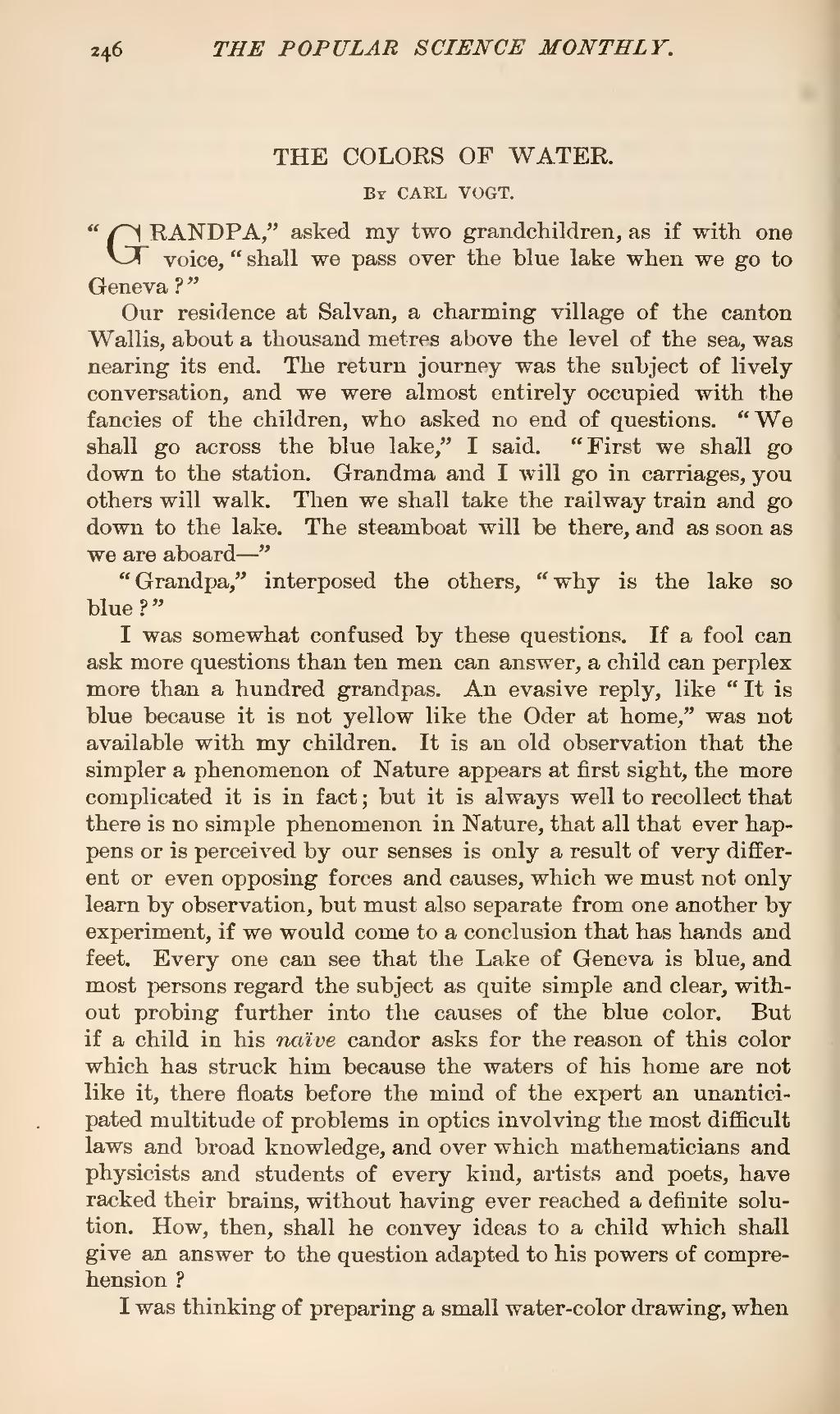| THE COLORS OF WATER. |
By CARL VOGT.
"GRANDPA," asked my two grandchildren, as if with one voice, "shall we pass over the blue lake when we go to Geneva?"
Our residence at Salvan, a charming village of the canton Wallis, about a thousand metres above the level of the sea, was nearing its end. The return journey was the subject of lively conversation, and we were almost entirely occupied with the fancies of the children, who asked no end of questions. "We shall go across the blue lake," I said. "First we shall go down to the station. Grandma and I will go in carriages, you others will walk. Then we shall take the railway train and go down to the lake. The steamboat will be there, and as soon as we are aboard—"
"Grandpa," interposed the others, "why is the lake so blue?"
I was somewhat confused by these questions. If a fool can ask more questions than ten men can answer, a child can perplex more than a hundred grandpas. An evasive reply, like "It is blue because it is not yellow like the Oder at home," was not available with my children. It is an old observation that the simpler a phenomenon of Nature appears at first sight, the more complicated it is in fact; but it is always well to recollect that there is no simple phenomenon in Nature, that all that ever happens or is perceived by our senses is only a result of very different or even opposing forces and causes, which we must not only learn by observation, but must also separate from one another by experiment, if we would come to a conclusion that has hands and feet. Every one can see that the Lake of Geneva is blue, and most persons regard the subject as quite simple and clear, without probing further into the causes of the blue color. But if a child in his naïve candor asks for the reason of this color which has struck him because the waters of his home are not like it, there floats before the mind of the expert an unanticipated multitude of problems in optics involving the most difficult laws and broad knowledge, and over which mathematicians and physicists and students of every kind, artists and poets, have racked their brains, without having ever reached a definite solution. How, then, shall he convey ideas to a child which shall give an answer to the question adapted to his powers of comprehension?
I was thinking of preparing a small water-color drawing, when

